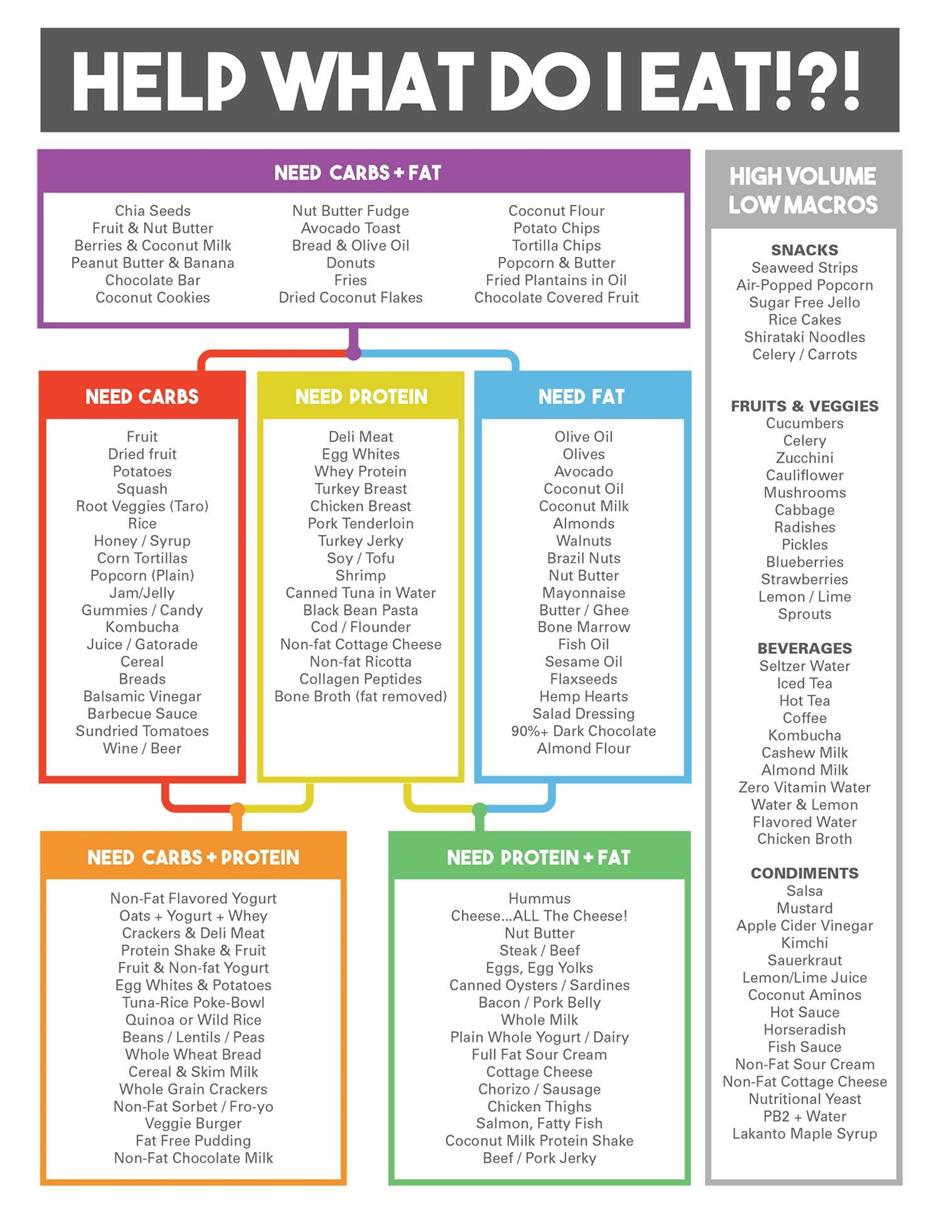Help

joannependlebury4037
Posts: 1 Member
in Recipes
How do i boost my calorie intake without going over my fats im new to this already at slimming world but according to this iam not eating enough or not the right foods
0
Replies
-
If I understand your question, you are looking at your MFP breakdown of your daily food intake, which shows how much protein, carbs and fat your food represents. It also has a "goal %" of what you "should" be getting.
Be aware that this is meant to be a starting point, not an ending point. If MFP provides you with a goal of 25% protein for the day, but your day ends up being 20% (or 30%) protein, have you done something wrong? Absolutely not! Unless a medical doctor has given you an actual breakdown he/she wants you to adhere to, your days are going to vary from one to the next. Some days you'll be over, some days under. This applies to all three macros (protein, carbs, fat). For example, tomorrow I'll be making a pot of chili, which will put me over my fat goal for the day. But I might have lean chicken breast the next day and be under.
Now, if your reality is radically different from the recommended goal, it may be time to reassess. If you're always getting double the fat, maybe you need to look at your food choices. Or maybe you need to look at the percentages themselves, they may be wrong for you. People on low-carb diets are going to get a different percentage of their dietary calories from carbs than somebody who's not following that same diet. Who's wrong? Nobody, as long as you're doing what works for you and are not violating medical orders.
Now, in the strictest sense, I did not answer your question of how to boost calorie intake without increasing fat content. The simple answer is eat something with relatively low fat, such as fruits/vegetables, bread, rice, certain types of crackers, lean meat, etc. Theoretically you could just swallow a literal spoonful of sugar, but most here in MFP would recommend against doing that (too often), lol.1 -
It's calories that matter for weight loss directly, not what macro comes along with the calories.
Macros are more about nutrition, health, body composition, energy level, satiation, and that sort of thing. Those are important to most people, too, though, right?
Macros or other nutrient intake may have an indirect effect on weight loss. Sub-ideal nutrition can tank energy level, so we move less and burn fewer calories than expected. Sub-ideal nutrition can spike appetite or cravings, make it hard (or impossible) to stick to a sensible calorie goal. But the direct effect on weight loss is still via the calories.
What nossmf said is right. Generally, being over on any macro is fine, within calories, for weight loss. From a nutrition standpoint, getting way too little fat or protein consistently is not a great idea.
Why? Those - or really parts of them - are "essential nutrients", in the sense that our bodies can't manufacture them out of any other nutrient intake, so we need to eat some for best nutrition and health.
How much is "way too little"? As nossmf said, that will vary by person, to some extent. Weight lifters need more protein than couch potatoes, some people get better digestive throughput (i.e., avoid constipation!) if they get a minimum of fats, different people find different macro mixes more or less filling - and lots of other reasons for variation.
The MFP default goals aren't a bad place to start, for most people, as long as they're not eating way too few calories by trying to lose weight aggressively fast. Even when using the MFP defaults as a guide, it's fine to average around those values over a day or few: It doesn't have to be exactly exact every single day. Humans are adaptive omnivores.
If you choose to fine-tune your eating to dial in better nutrition, notice how you feel and perform, and you can adjust your goals as nossmf suggests.
What to eat to fine-tune? Well, you can look at your diary, see where your "too much" fat is coming from, and eat those things in smaller portions or less frequently. There are various ways to increase other macros of concern to you. One is to do a web search for something general like "what to eat for macros", or specific like "low calorie protein" and you'll get a bunch of articles or graphics (some more reliable than others!). Here are a couple of charts I picked at random to show you what I mean (not endorsing those specific sites, but the charts look reasonable to me).
Source: https://www.eattoperform.com/blog/suggestions-on-what-you-can-use-to-fill-your-macros
Source: https://www.workingagainstgravity.com/articles/17-macro-tracking-tips
Repeating: I'm not endorsing those sites. I don't use them, know nothing about them. They're just examples of reasonable charts, IME.
If protein is what you want to add, this thread here is very helpful, IMO:
https://community.myfitnesspal.com/en/discussion/10247171/carbs-and-fats-are-cheap-heres-a-guide-to-getting-your-proteins-worth-fiber-also
Best wishes!
P.S. Eating way under your calorie goal can be a bad thing, maybe worse than not getting reasonable macros, at least in the short run. Eat enough calories to fuel yourself while you're working on improving nutrition. Why? Granny says. 1
1
Categories
- All Categories
- 1.4M Health, Wellness and Goals
- 398.2K Introduce Yourself
- 44.7K Getting Started
- 261K Health and Weight Loss
- 176.4K Food and Nutrition
- 47.7K Recipes
- 233K Fitness and Exercise
- 462 Sleep, Mindfulness and Overall Wellness
- 6.5K Goal: Maintaining Weight
- 8.7K Goal: Gaining Weight and Body Building
- 153.5K Motivation and Support
- 8.4K Challenges
- 1.4K Debate Club
- 96.5K Chit-Chat
- 2.6K Fun and Games
- 4.7K MyFitnessPal Information
- 17 News and Announcements
- 21 MyFitnessPal Academy
- 1.5K Feature Suggestions and Ideas
- 3.2K MyFitnessPal Tech Support Questions

